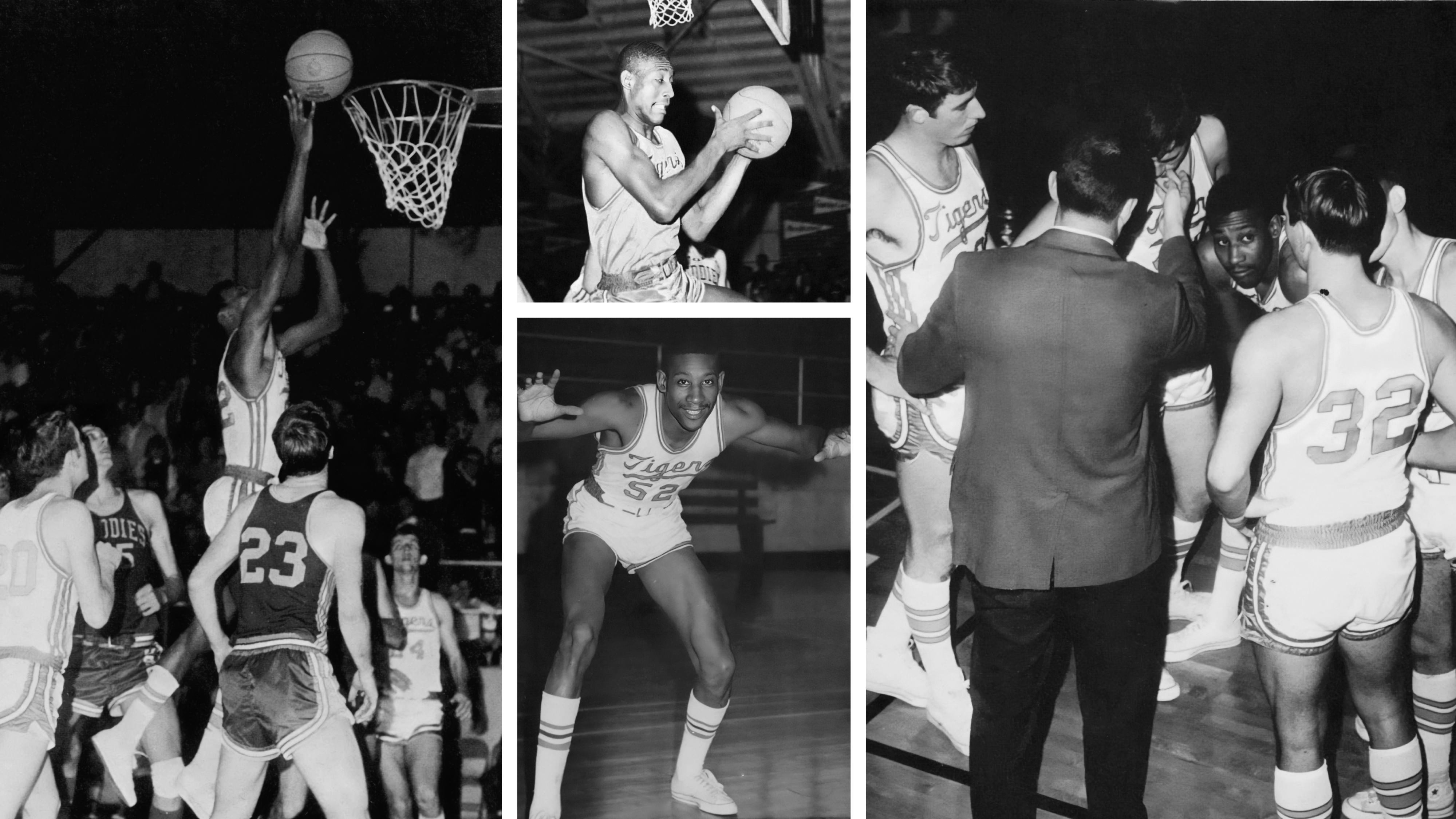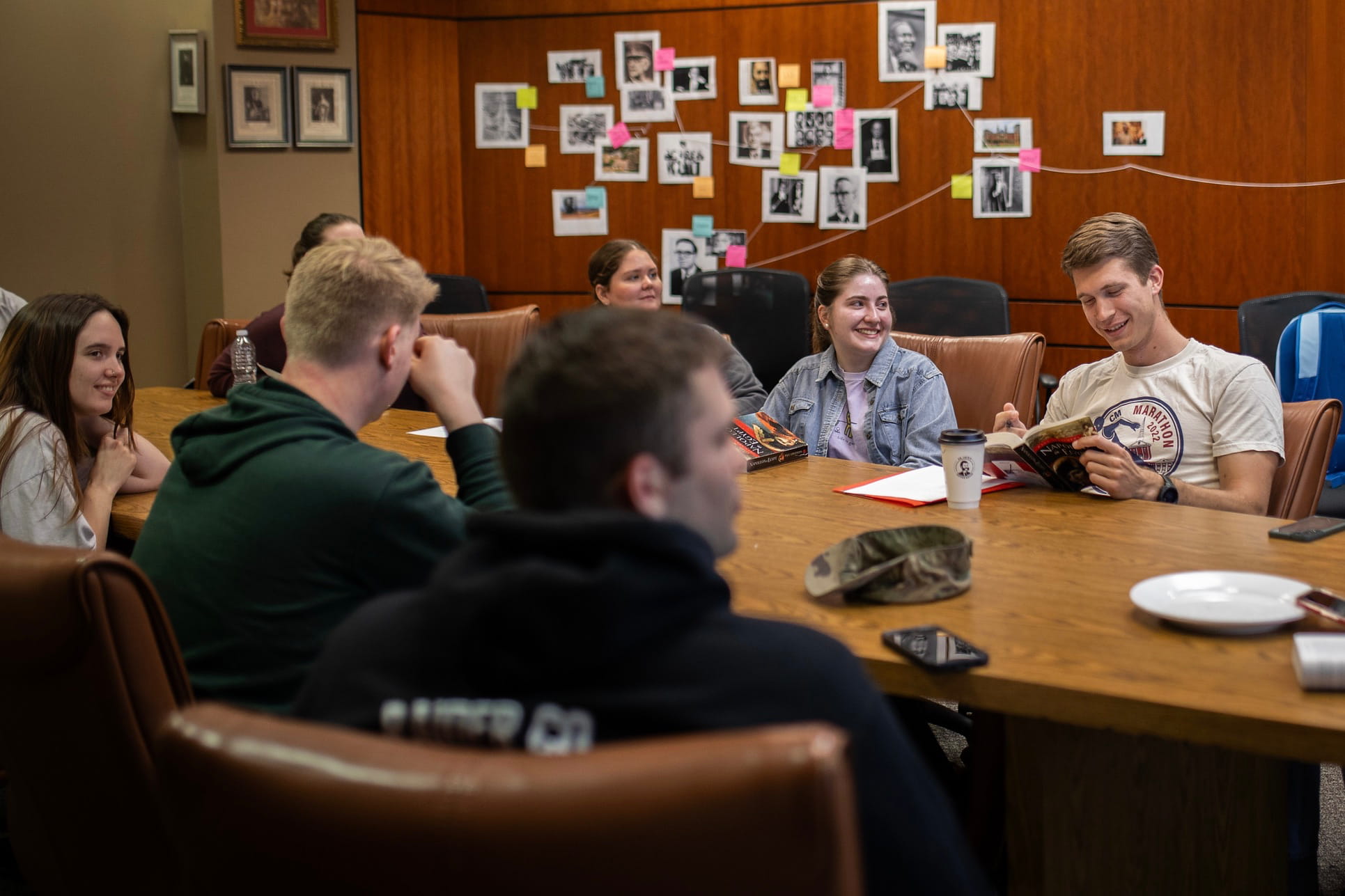Casey Motl, 2009 Most Inspirational Prof, takes unique approach to teaching
July 02, 2009 - Elizabeth Pannell
Kevin “Casey” Motl has only been teaching at Ouachita Baptist University in Arkadelphia
for three years, but during that time he has managed to inspire his students by making
history relevant.
Motl, an assistant professor, was named Most Inspirational Professor, an award voted
on annually by OBU’s student body.
“I don’t know why I got the award,” Motl, 37, said. “Nobody enters a profession not
wanting to have an impact. My students sustain me; I can’t do without them.”
Motl said while he was doing his undergraduate work at Texas A&M, the history classes
he took “didn’t speak to me” and weren’t “meaningful.”
“History needs to be relevant,” Motl said. “It’s hard for an 18-, 19- or 20-year-old
to see that, because they haven’t been around that long and don’t have enough personal
history. I want to make history relevant to their lives - show them they have roots
in some past events and humanize it.”
Motl does this by stepping away from the typical history teaching approach of making
students regurgitate dates and times. Instead, he explains why those dates and times
are meaningful, and he humanizes the subjects.
“I’m a bit theatrical when I teach,” Motl said. “I jump around, yell and throw things
- I get worked up because I’m passionate. I want to start an awakening.”
Originally from Texas, Motl received his bachelor’s degree in history from Texas A&M,
his master’s degree in history from the University of North Texas and he returned
to get his doctorate in women’s studies from Texas A&M.
Motl teaches western civilization, German history and OBU’s first class on women’s
history - history of American women. He also teaches contemporary world history, a
class designed to look at today’s issues and back track to see where they came from.
Motl’s path to women’s studies was not typical. He planned to continue his education
on modern German history, but found the language barrier difficult to overcome.
“I could go to Berlin right now and order a meal, get a hotel room and find the bathroom,
but I can’t talk to someone about where you are going to go after you die,” Motl said.
It was during a seminar class that Motl got the idea to write about the women’s suffrage
movement in Brazos County, Texas.
“The professor in this class told us we had to write a 25-page paper, which was typical,”
Motl said. “But she wanted us to focus on local history. So I thought of women’s suffrage
in Brazos County and just rolled with it.
“I had always been confused by gender studies; I just didn’t get it. Once I got into
it, it was such a powerful compulsion. It was the most fascinating project I had ever
worked on.”
After his paper was complete, Motl said he was fully prepared to return to his work
on German studies to complete his doctorate.
“I went to my wife and told her that it just wasn’t nearly as exciting as what I had
been working on,” Motl said. “I knew this is what I’m being asked to do.”
In the meantime, Motl’s paper won an award and grant money started pouring in for
him to complete his research.
“That just reaffirmed to me that I was supposed to continue with women’s studies,”
Motl said. “Now I see gender issues everywhere. It has totally changed my life.”
Motl took his original seminar paper and added to it to complete his doctoral dissertation.
He plans to continue adding to it and eventually have it published as a book.
Motl’s journey to Arkansas began with his wife, Lori, an alumnus of OBU. At the time
Motl was a high school teacher at a large high school with an international baccalaureate
program.
“Teaching such bright students awakened me to go to grad school,” Motl said. “I knew
I wanted to be around those kind of students all the time. I knew I wanted to be a
professor.”
When a job became available at OBU, Motl applied. On Christmas Eve 2004, Motl was
notified that the funding for the position was cut.
“I was fine with it; I just thought I would go along my way and finish my doctorate,”
Motl said.
The following fall another position opened in the history department. This time Motl
had a few reservations.
“All of my experience was in public, secular institutions,” Motl said.
“My one worry was that they wanted me to be a preacher in the classroom. That’s not
my job. My job is to teach history according to my knowledge and research.”
In 2005, Motl and his wife made a trip to OBU for its homecoming activities. He had
informed the head of the search committee so the two could meet informally.
“It really turned into an impromptu interview,” Motl said. “I guess I said enough
because I became a finalist for the job.”
On his next visit to the school he visited with faculty and students and taught a
history class as well.
“The first day I was on campus all my trepidations were gone,” Motl said. “The academic
freedom is complete, I’m not asked to conform to the Southern Baptist Convention;
the classroom is as if I was teaching at A&M.” Motl did however distinguish between
the two universities.
“If I want to talk about spiritual growth or issues I can do that here,” Motl said.
“I can form appropriate relationships with students and we can discuss faith and family.
At a larger university you would never see your students except in class. Here I see
them everywhere.
“This is everything I could want in a job. Students are not just ID numbers they are
more. God has allowed me to have for my first job what I wanted in my last job. This
is it; I’m not leaving.”
By Elizabeth Pannell, Arkansas Democrat-Gazette Tri-Lakes edition, June 28, 2009
You Also Might Like
Ouachita reports Spring '26 enrollment, led by 50% increase in graduate students
February 11, 2026Recent
Ouachita reports Spring '26 enrollment, led by 50% increase in graduate students
February 11, 2026



